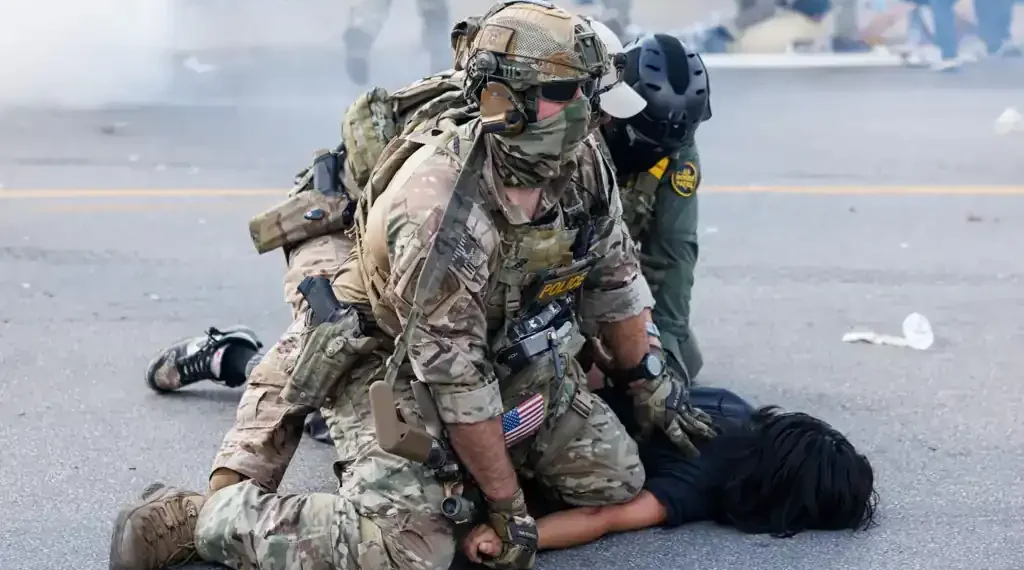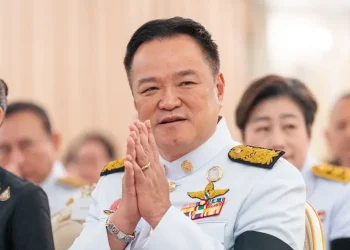White House Approves Federal Troop Deployment to Chicago
October 5, 2025, 22:00 EDT
President Donald Trump has authorized the deployment of approximately 300 National Guard troops to Chicago, citing what the White House described as “violent riots and lawlessness” in the city. The move marks the latest expansion of federal law enforcement efforts under Trump’s administration.
White House spokesperson Abigail Jackson said on Saturday that the president approved the use of Illinois National Guard members to “protect federal officers and assets” after local leaders, she claimed, failed to restore order. “President Trump will not turn a blind eye to the lawlessness plaguing American cities,” Jackson said.
Democratic Gov. JB Pritzker strongly opposed the order, calling it “a manufactured performance — not a serious effort to protect public safety.” He said the Pentagon notified the state early Saturday morning and criticized the decision as an overreach of federal power.
Illinois Governor Pushes Back Against Federal Overreach
Governor Pritzker said the Trump administration’s demand to activate state troops amounted to an “ultimatum.” “It is absolutely outrageous and un-American to demand a Governor send military troops within our own borders and against our will,” Pritzker said in a statement.
The governor argued that Illinois law enforcement agencies, including state police and county officers, have been working closely to ensure safety around federal facilities such as the U.S. Immigration and Customs Enforcement (ICE) center in Broadview, a suburb of Chicago.
“This has never been about safety,” Pritzker said. “This is about control.”
Federal officials reported that 13 protesters were arrested Friday near the Broadview ICE facility, which has been a frequent site of demonstrations linked to the administration’s immigration enforcement push this fall.
Shooting Incident Heightens Tensions
The Department of Homeland Security (DHS) confirmed that Border Patrol agents shot and injured a woman on Chicago’s southwest side on Saturday. In a statement, DHS said agents were “rammed by vehicles and boxed in by 10 cars.” When officers exited their vehicle, “a suspect tried to run them over, forcing the officers to fire defensively,” according to the agency.
DHS spokesperson Tricia McLaughlin said the woman, a U.S. citizen armed with a semiautomatic weapon, had been identified in a Customs and Border Protection intelligence bulletin last week for allegedly posting personal information about federal agents online. She was treated and released later in the day, and no officers were seriously injured.
The Chicago Police Department said it responded to document the incident and manage traffic but did not participate in the investigation. “CPD is not involved in the incident or its investigation. Federal authorities are investigating,” the department said in a statement.
Broader Pattern of Federal Deployments
The deployment to Chicago mirrors other recent actions by the Trump administration. Federal and National Guard forces were previously sent to Los Angeles, Washington, D.C., and Memphis to support local law enforcement.
In California, Governor Gavin Newsom challenged the legality of the deployments, arguing that the federal government had overstepped its authority. A federal court temporarily blocked the administration’s order, though the Justice Department has appealed. A three-judge panel of the U.S. Court of Appeals for the Ninth Circuit signaled that the government’s position could ultimately prevail.
Similarly, Tennessee National Guard troops are expected to arrive in Memphis to assist local police, according to defense officials.
Legal Challenges and Constitutional Questions
The dispute between federal and state authorities has reignited debate over the limits of presidential power in domestic law enforcement. Legal experts note that the Posse Comitatus Act generally restricts the use of the military for civilian policing unless explicitly authorized by Congress or the Constitution.
Oregon officials are pursuing similar legal action after Trump announced plans to send federal troops to Portland. Many of the images the administration has cited to justify the deployment reportedly date back to 2020, during the protests following the killing of George Floyd.
U.S. District Judge Karin J. Immergut issued a temporary restraining order Saturday, blocking the federal government from deploying the National Guard in Oregon pending further hearings. The plaintiffs argue that such action would violate both the Constitution and federal law limiting military involvement in domestic affairs.
Although Trump has federalized 200 National Guard members in Oregon, there is no evidence they have entered Portland. Witnesses reported seeing the troops training along the Oregon coast in preparation for possible deployment.
Uncertain Timing and Purpose in Chicago
Despite the authorization, it remains unclear when and where the National Guard will be deployed in Chicago. Neither the White House nor the Illinois National Guard has provided an operational timeline.
Local officials and community leaders have voiced concern that a military presence could escalate tensions rather than calm them. Civil rights groups have also warned that the use of armed forces in domestic matters risks undermining public trust in law enforcement.
For now, Illinois authorities continue to coordinate with federal officials to manage protests and ensure security around federal sites while awaiting further clarification from Washington.
This article was rewritten by JournosNews.com based on verified reporting from trusted sources. The content has been independently reviewed, fact-checked, and edited for accuracy, neutrality, tone, and global readability in accordance with Google News and AdSense standards.
All opinions, quotes, or statements from contributors, experts, or sourced organizations do not necessarily reflect the views of JournosNews.com. JournosNews.com maintains full editorial independence from any external funders, sponsors, or organizations.
Stay informed with JournosNews.com — your trusted source for verified global reporting and in-depth analysis. Follow us on Google News, BlueSky, and X for real-time updates.














